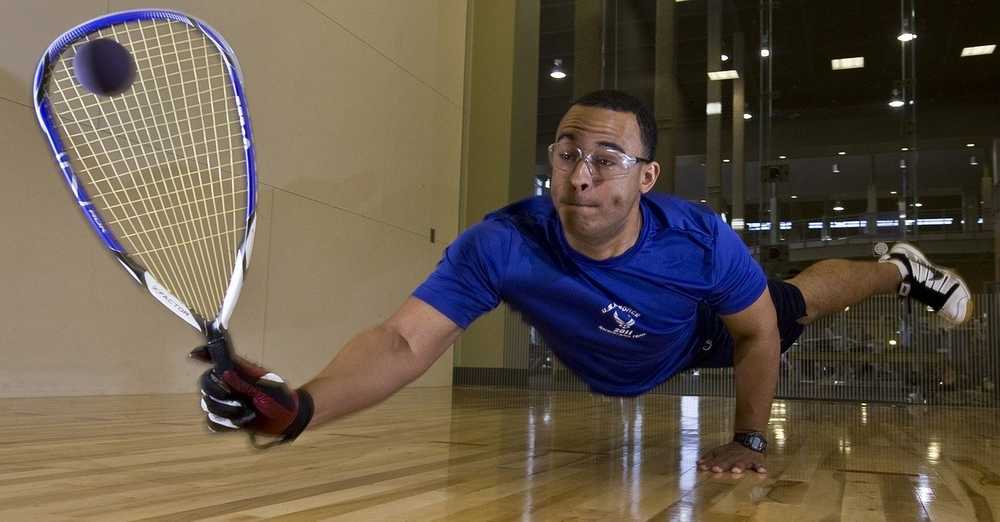
Joseph McCoy
0
4146
867
Most competitive games require players to use some sort of skill to gain an edge against their opponents. Even games as simple as Go Fish or Rock, Paper, Scissors can be beaten using strategy and planning (in fact, Rock, Paper, Scissors is much more complex than you might think). Players of almost any game in human history can find a way to gain an advantage over their opponent to maximize their chances of winning. Here is how the most successful people get that done.
They project confidence
Before even becoming invested in getting good at a game, players must be confident in their abilities. I know for an absolute fact that I'll never be a great soccer player; it might be this lack of confidence that keeps me from even trying. But, I'm definitely capable of being a winning chess or poker player, and this confidence has helped me approach both games in such a way that I don't rely on dumb luck to win. I've used this confidence as a springboard to help me get even better at the cerebral games I've always had a knack for. Advertising
They understand the rules
Even simple games such as Sorry! have lesser known rules that, if you know them but your opponent does not, can help you win. Using Sorry! as an example, if you pick a seven card, you are allowed to “split” your move between two pieces (one can move three spaces, and another four, for example). While it sounds pretty inconsequential, knowing this rule comes in handy when you know you have to move an exact number of spaces to get a piece into your home base. In a game like football, a defensive player must know the exact difference between a clean block and holding, or else he will never succeed at stopping the blitz without being penalized.
They study strategy
Once you have a true understanding of the rules to the game, you need to understand the strategy behind winning it. Whatever game you are getting into, there are almost unlimited resources online which you can use to your advantage (there is even a strategy to winning Guess Who?, if you can believe it). The best part about learning strategy is that all games are staggered in difficulty depending on your understanding of them. A game like chess is a perfect example. A five-year-old can learn some basic strategy to the game, like how to best protect the king from early attacks, and can use this strategy to beat players who don't use this strategy. However, as the child grows, he will find the same strategy does not work against more seasoned players, and he will be forced to improve his own strategy in order to continue winning. Advertising
They practice
Along with studying strategy, players must put the strategy into practice. Michael Jordan once (at least once) sunk a free throw with his eyes closed during a game. This wasn't just something he could magically do; he obviously spent hours upon hours making sure he could make almost every single free throw he ever took. And let's be serious: practicing free throws for hours on end could not possibly have been fun. But he perfected his shot, and that's why we consider him the best basketball player of all time. Successful people practice every aspect of their craft until they can literally do it blindfolded.
They exercise
Along with practicing, you must exercise to train in preparation for a game. Exercising doesn't necessarily have to be directly related to the game you are preparing for, but it should strengthen something within you that will help you during play. Weight training, running, or swimming will definitely help you in an athletic event, while completing logic puzzles and problems will help expand your mind before a “mind game.” Keeping your mind and body sharp before a competition allows you to easily maintain an equilibrium, think critically, and adapt to changes in the game. Advertising
Read Next

10 Small Changes To Make Your House Feel Like A Home

What Makes People Happy? 20 Secrets of “Always Happy” People

How to Sharpen Your Transferable Skills For a Swift Career Switch
Scroll down to continue reading articleThey stay positive
The old saying is true: quitters never win, and winners never quit. It should be noted that in that saying, there is nothing about winners never losing. You will definitely face setbacks; there's no denying that. It's important to keep your eyes on your goal when you face a loss, or an injury, or any outside factor that inhibits your ability. Winners push past a loss or a disappointment, knowing it's only a blip on the radar. On the other hand, a loss is not just a blip if it's what keeps you from playing ever again; it defines you as a loser for the rest of your days.
They follow models
The most successful competitors are inspired by those who came before them. They are not only inspired by them, but are driven by them. Competitors study how their idols perform, and seek not only to emulate them, but to eventually surpass them. They learn what regimens their idols followed and what strategies they utilized, and use this information to maximize their own potential. Not only does studying professionals from the past help the competitor progress, but in doing so, helps the game evolve as well. Advertising
They study past performances
Athletes and competitors not only study others, but themselves as well. Every good athlete studies their past performances to see what they did right, and what they did wrong. The most successful poker players analyze crucial hands that either made or lost a lot of money, to see if there's any way they can change their play in the future. One of the reasons chess players are so successful is not simply because they're “good at chess”; they're good because they've spent hours and hours studying past moves, and because of this know exactly what to do when they get into a certain situation. Of course, it's incredibly important to look at past performances not to beat yourself up, but to keep progressing each time you compete.
They have fun
Pros have fun, too. Why do you think they do what they do for a living? Now, this doesn't suggest that pros just go out and have a blast; it's a more controlled type of fun, but it's fun nonetheless. Professionals talk about getting “in the zone,” going on a hot streak that can't be beat. Of course, they also go through slumps (baseball players, especially). Something to note is that whenever hitters go into these week-long doldrums, getting maybe one hit every five games, their coaches ultimately tell them to forget about it, stop being so nervous, and just have fun. Usually, taking pressure off of themselves instead of putting more on is what helps them gain their stride back. Even though professionals should take their career seriously, they should always remember to simply enjoy themselves.
Featured photo credit: Racquetball Player Ball Dive Hit Return Play/skeeze via pixabay.com











